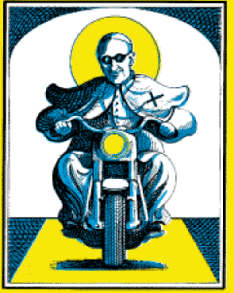How good is it that the world is head-over-heels in love with Pope Francis? In the opinion of Commonweal editor Paul Baumann, writing in Slate, not so good, at least as far as the church itself is concerned.
The truth is that the more the world flatters the Catholic Church by fixating on the papacy—and the more the internal Catholic conversation is monopolized by speculation about the intentions of one man—the less likely it is that the church will succeed in moving beyond the confusions and conflicts that have preoccupied it since the Second Vatican Council (1962-65). The church desperately needs to reclaim its cultural and spiritual equilibrium; it must find a density and richness of worship and mission and a renewed public presence, which far transcend mere loyalty to the pope. Lacking such equilibrium and self-possession, the church cannot find its true voice. But to find this voice, Catholics will have to turn not to Rome but toward one another, which is where both the problems and the solutions lie.
It’s a nice thought, but (outsider that I am) I don’t buy it. What keeps Catholics from working out their internal differences by themselves is not the world’s fixation on the pope but the power the papacy wields within the church.
That power can be traced back to the 11th century, when a succession of reforming popes (backed initially by the Western emperor) took it upon themselves to clean up the church and serve as its supreme legislative and judicial authority. It didn’t take long for papal authoritarianism to be resented, and over the centuries the church has been something of a wrestling match between proponents and opponents of it.
The explanation for the conflicts and confusion that have preoccupied the church since the Second Vatican Council is that Vatican II represented a move away from Roman control, via a strengthening of national bishops councils, a recognition of the views of the community of the faithful, and a general opening to the world. In this regard, the papacies of John Paul II and Benedict XVI were a counter-revolution, a “reform of the reform” — or, if you will, the empire strikes back.
It’s all well and good for progressives like Baumann to urge their co-religionists to turn to one another to solve their problems, but without the right kind of diocesan leadership the problems cannot be worked out. And it’s the pope who appoints the the diocesan leaders — the bishops.
Francis, who has given many signals that he wants to revivify the spirit of Vatican II, has made it clear by word and deed that he wants to appoint bishops of a different stripe. He wants non-careerists who are close to the people, not ideological warriors; and he has reconfigured the Vatican’s Congregation of Bishops in order to come up with them. If he succeeds, the kind of internal conversation Baumann has in mind might actually happen.
But for it to happen, he’s got to succeed.






